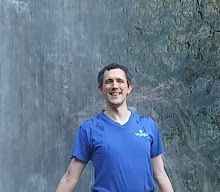I was going through some old stuff and found these. I'll post the answers later.
A bunch of crosspatch monarchs have a meeting, then all of them leave except one. What is that one called?
What do you call a singing dove in a soundproof box?
What English word has the most letters in it?
What begins with e, ends with e, and only has one letter in it?
How many wrinkles are on an old person’s hand?
What is it called when you offer your congratulations to someone?
How do you drop an egg 100 ft. without breaking it?
Why was the water jealous of the food?
A rooster lays an egg on top of a henhouse with a peaked roof. Which side does the egg roll off?
A puddle, a ruler, and a history book were arguing about who was the most stylish. Who was, and why?
What crime is committed when someone tips their king over in chess?
A bee, a rope, a telephone, and a fur were planning to go to a cookie party. Only one made it. Which was it, and why?
What happens when you ask an undersized mutt sucking two eggs a question?
What did the professor say when his alarm clock flew out the window?
What did the kitten want to be when he grew up?
What is it called when three umpires show up for one game?
You have a test coming up about Electricity, English, and Zoology. What kind of a test is this?
What is it called when the last runner in a race passes the first runner?
There are four first-graders in a classroom. They have five preschoolers come visit. Now how many children are there in the classroom?
A man fell out of tree, broke his arm and sprained an ankle. He limped to his car, then drove himself to the hospital. Was the man a fast driver or a slow driver?
Who’s a technician’s best friend?
What’s the wrong boy called?
Why do you always start royal meetings without the prince?
What kinds of fruit are good for broken furniture?
Which is colder, a frog or a spider?
Why do numbers hate numbers equal to them?
What is more dependably honest, envelope packaging or boxing?
What is it called when all the Microsoft Techies get together?
Three cars are in the far left lane of a four-lane street divided by a median. One car turns into the right lane. What happens to the other cars?

